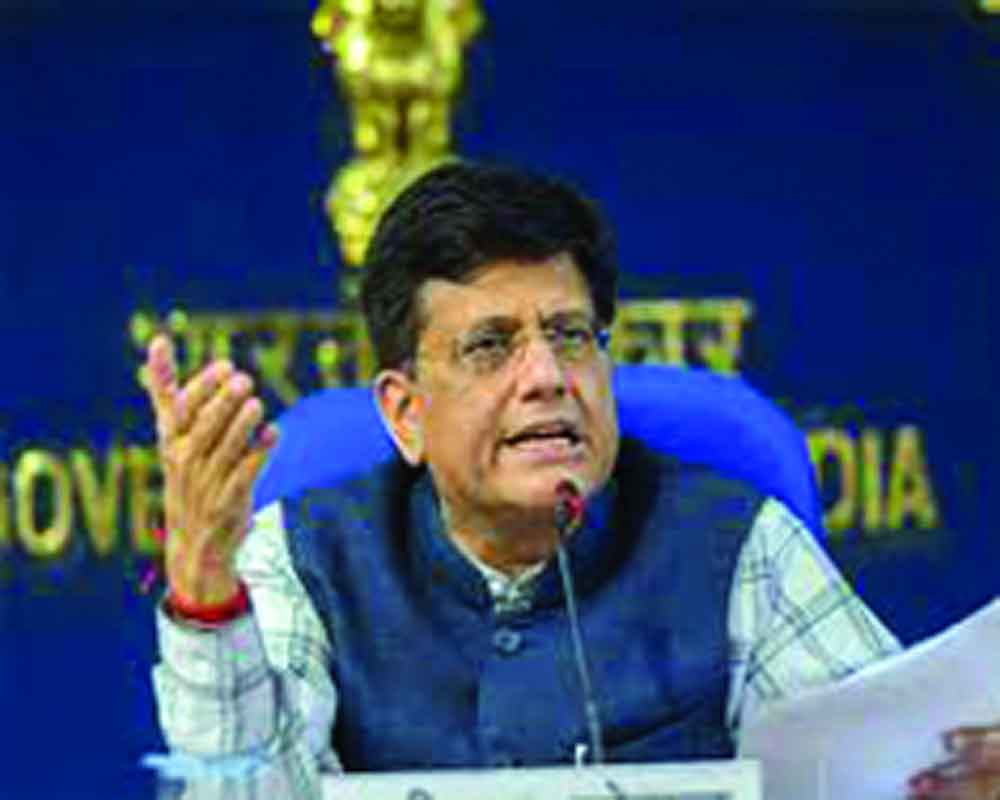India-US Bilateral Trade Talks: Key Issues And Expected Outcomes

Table of Contents
Key Issues Hampering India-US Trade Growth
Several critical issues complicate the growth of India-US trade. Addressing these challenges effectively is paramount to unlocking the full potential of this vital economic partnership.
Tariff and Non-Tariff Barriers
Significant tariff disputes continue to hinder bilateral trade. These disputes often center on specific products and sectors, resulting in retaliatory measures and trade restrictions. For example, tariffs on steel and aluminum have impacted both countries. Beyond tariffs, non-tariff barriers pose significant challenges. These include:
- Regulatory hurdles: Differences in regulatory frameworks and compliance requirements create significant obstacles for businesses.
- Labeling requirements: Meeting varying labeling standards adds to the cost and complexity of exporting goods.
- Sanitary and phytosanitary (SPS) standards: Differing food safety and animal health regulations can restrict agricultural product trade.
These barriers affect various sectors. The pharmaceutical industry faces challenges related to patent protection and pricing regulations. Agricultural product exports from India face hurdles due to stringent SPS standards in the US. The textile industry also navigates complex trade barriers, impacting its competitiveness in the US market. Overcoming these trade barriers requires concerted efforts toward regulatory compliance and harmonization. Addressing these issues through dialogue and cooperation is crucial for boosting trade volume and promoting mutually beneficial trade relations.
Intellectual Property Rights (IPR) Protection
The protection of intellectual property rights (IPR) is another critical area of concern in India-US trade relations. Differences in IPR enforcement and the complexities surrounding data localization and digital trade create friction.
- Data localization: Requirements for storing data within a specific country can pose challenges for technology companies operating across borders.
- Digital trade: The growing digital economy necessitates robust frameworks for IPR protection in the digital space, including copyright and patent rights.
These issues significantly impact pharmaceutical companies reliant on patent protection and technology firms dealing with sensitive data. Strengthening IPR protection and establishing clear rules for data localization are crucial for fostering innovation and promoting technology transfer between the two countries.
Trade Deficits and Market Access
A persistent trade deficit between the US and India complicates bilateral trade discussions. Challenges faced by Indian exporters in accessing the US market and vice-versa exacerbate this imbalance.
- Market access: Indian exporters often face difficulties competing with established US businesses due to various factors, including non-tariff barriers.
- Competitive advantage: The US enjoys a competitive advantage in several sectors, which further complicates the trade balance.
Solutions to address these imbalances may involve strategies to promote export diversification, enhance market access for Indian businesses, and identify areas for mutually beneficial collaborations and joint ventures.
Potential Outcomes of the India-US Bilateral Trade Talks
Successful India-US bilateral trade talks hold the potential to yield significant benefits for both countries. Several positive outcomes are possible.
Agreements on Specific Sectors
Targeted agreements in specific sectors could significantly boost trade volumes. Potential breakthroughs include:
- Agriculture: Easing SPS standards and reducing tariffs on agricultural products could enhance bilateral trade in this sector.
- Pharmaceuticals: Harmonizing regulatory frameworks and strengthening IPR protection could foster greater collaboration in the pharmaceutical industry.
- Information technology: Agreements on data localization and digital trade could unlock opportunities for technology firms in both countries.
These sector-specific agreements would foster trade liberalization and enhance the competitiveness of businesses in both markets. Expert opinions suggest that progress in these areas is highly likely, although reaching consensus may require compromise and flexibility from both sides.
Enhanced Investment Flows
Successful trade talks could significantly increase foreign direct investment (FDI) flows between India and the US.
- Increased FDI would translate to job creation and economic growth in both countries.
- Investment opportunities abound in various sectors including technology, infrastructure, and manufacturing.
This increased investment could potentially revitalize economies and create new avenues for mutual growth and prosperity.
Strengthened Strategic Partnership
Beyond economic benefits, successful trade negotiations could significantly enhance the strategic partnership between India and the US.
- Improved trade relations would signify stronger bilateral relations, furthering geopolitical cooperation on various global issues.
- This strategic partnership will bolster economic ties and mutual national interests.
This enhanced partnership would benefit both nations and have positive implications for regional and global stability.
Charting the Future of India-US Bilateral Trade Talks
The India-US bilateral trade talks present both challenges and opportunities. Addressing tariff and non-tariff barriers, protecting IPR, and mitigating trade imbalances are crucial for unlocking the full potential of this vital economic relationship. Successful negotiations can lead to sector-specific agreements, increased FDI flows, and a strengthened strategic partnership between the two nations. The future trajectory of this crucial economic relationship hinges on the willingness of both countries to engage constructively and find mutually beneficial solutions. Stay updated on the progress of India-US bilateral trade talks to understand the evolving dynamics shaping the future of this crucial economic relationship.

Featured Posts
-
 Liga Chempionov 2024 2025 Polniy Obzor Polufinalov I Finala Prognozy Raspisanie I Translyatsii
May 09, 2025
Liga Chempionov 2024 2025 Polniy Obzor Polufinalov I Finala Prognozy Raspisanie I Translyatsii
May 09, 2025 -
 Jeanine Pirros North Idaho Visit Date Location And Event Details
May 09, 2025
Jeanine Pirros North Idaho Visit Date Location And Event Details
May 09, 2025 -
 Nyt Crossword April 12 2025 Complete Guide To Solving The Strands Puzzle
May 09, 2025
Nyt Crossword April 12 2025 Complete Guide To Solving The Strands Puzzle
May 09, 2025 -
 Formacioni Me I Mire I Gjysmefinaleve Te Liges Se Kampioneve Dominimi I Psg Se
May 09, 2025
Formacioni Me I Mire I Gjysmefinaleve Te Liges Se Kampioneve Dominimi I Psg Se
May 09, 2025 -
 Dijon Enquete Apres La Chute Mortelle D Un Jeune Ouvrier
May 09, 2025
Dijon Enquete Apres La Chute Mortelle D Un Jeune Ouvrier
May 09, 2025
